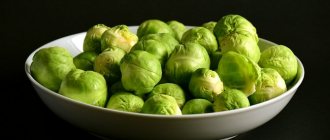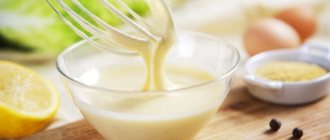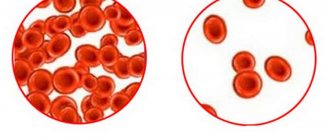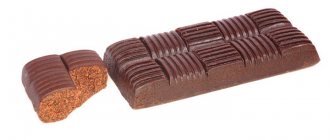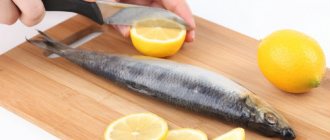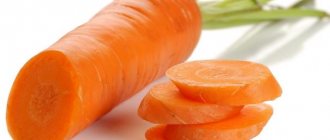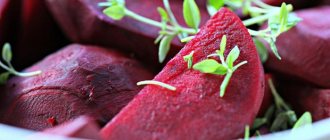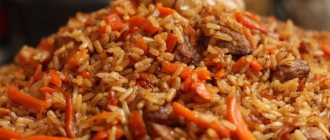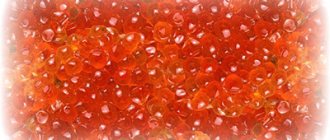The diet of a nursing woman is a fine line between what can be eaten and what not. There is no consensus among medical workers that would allow Chinese cabbage to be included in the category of prohibited or permitted food products.
In addition, various types of cabbage are rich in plant fiber, which poses a risk of intestinal colic in a newborn baby. Despite this feature, Chinese cabbage has a chemical composition that allows you to saturate the body with vitamins and microelements.
Use during lactation
Considering the beneficial properties and chemical composition of this product, it is an irreplaceable source of valuable nutritional components. Its use during lactation is not only not contraindicated, but also recommended. In addition, due to the low calorie content of this vegetable, you can get rid of excess body weight.
It is better to include this component in the diet of a nursing woman gradually, in small portions. At the initial stages, the product is served stewed, without adding seasonings and spices. After a nursing mother has decided to diversify her diet, she should carefully monitor the child’s body’s reaction to a new dish. If the baby develops symptoms such as intestinal colic, decreased or complete lack of appetite and regurgitation of portions of breast milk, then the nursing woman needs to stop eating the vegetable.
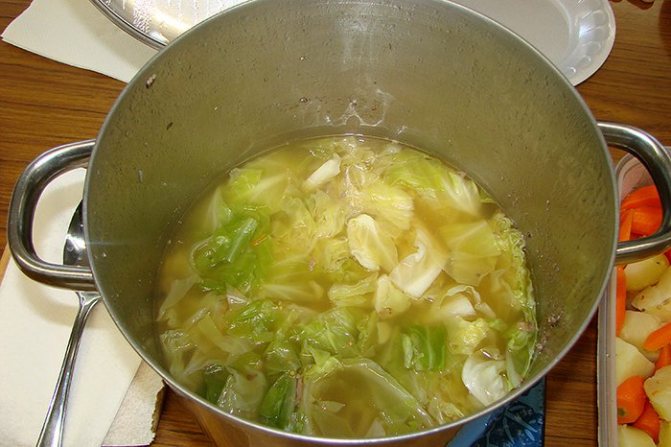
What to pay attention to
It is very important not to forget that there are certain contraindications. It is recommended to pay special attention to them so as not to provoke an allergic reaction or deterioration of health.
It is strictly forbidden to eat this leafy vegetable if there are problems with the gastrointestinal tract: high acidity, gastritis, colitis, bleeding of internal organs, ulcers and duodenitis.
Also, a young nursing mother should remember that during breastfeeding you can only experiment with one product. If a girl begins to introduce several new dishes a day, then it will be impossible to determine the cause of the allergy or unpleasant illness. You are allowed to eat only one type of new root vegetable (or fruit) per day in order to easily identify and eliminate the irritant in the future.
Read also: Can a nursing mother eat black bread (with breastfeeding)?
Particular care should be taken with:
- root vegetables (beets, turnips, radishes, horseradish);
- broccoli;
- red berries (strawberries, raspberries, cherries, cherries);
- exotic fruits (papaya, pineapple, mango, avocado, kiwi);
- citrus fruits (oranges, lemons, grapefruits);
- nuts (almonds, cashews, Brazil nuts, pistachios);
- legumes (peanuts, beans, lentils, chickpeas);
- seeds (pumpkin, sunflower).
This type is very good for health and should be present in the daily diet, but if the woman is breastfeeding and the baby is not yet 3-4 months old, then you should not take the risk of putting the child’s well-being at risk.
Rules for eating vegetables
Despite the fact that this vegetable is an edible product, the rules for its consumption play an important role. If a newborn baby who is breastfed has an individual intolerance, the nursing woman should refrain from consuming it.
It is necessary to introduce Chinese cabbage dishes into the diet of a lactating woman gradually, avoiding stress on the child’s body. To begin with, the product is served boiled or stewed. If the baby’s body does not give negative reactions, then the vegetables are used fresh for preparing salads and snacks.
This vegetable ingredient is used as a component of salads that contain apples, grated carrots, beets and potatoes. You can use raw Chinese cabbage for preparing various dishes only if the newborn baby does not have any manifestations of individual intolerance. In order to avoid negative consequences on the digestive system of mother and child, refrain from using various seasonings and sauces, including mayonnaise, when preparing dishes.
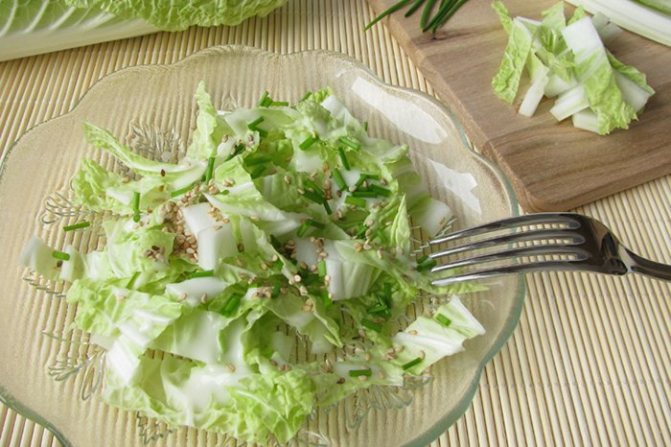
The decision about whether to introduce this vegetable into the diet of a nursing woman is made by a medical specialist.
This vegetable product does not pose a particular danger to the body of a newborn baby and his mother, however, abuse can lead to a number of negative reactions. Before introducing it into your diet, be sure to consult a doctor. Subscribe to our VKontakte group
Rules of use
A nursing mother should eat this fruit with extreme caution. It is important to remember that any type of cabbage can cause intolerance in a baby. Consuming such a product can cause colic in the tummy, bloating, constipation or diarrhea. Rough and fibrous vegetables are a controversial product in the diet for breastfeeding. A baby's fragile body can react quite unexpectedly to such an irritant.
Read also: Can I eat cod liver while breastfeeding (BF)?
To avoid troubles and protect the child’s body from discomfort, you must adhere to the following recommendations during breastfeeding:
- During breastfeeding, a nursing mother should add cabbage to her diet only when the baby is three months old. If you ignore this requirement, there is a risk of a number of complications.
- For the first time, it is recommended to eat a vegetable steamed (or boiled), without adding salt, spices, gravy, sauces, etc.
- You need to start using it with a small dose - 50 g. Afterwards, you must remember to very carefully monitor the child’s reaction.
- If you begin to experience stomach pain or gas, the product should be strictly avoided for another few months.
- When the Chinese leaf vegetable does not cause any adverse symptoms in the baby, it is permissible to eat it raw, unprocessed.
- It is better to add the ingredient to light salads, soups or vegetable stews.
- The fruit cannot be combined with milk, cottage cheese, cheese or mayonnaise. Such a compound can cause an unexpected reaction from the stomach.
- Before adding a new component to your menu, you should definitely consult your doctor.
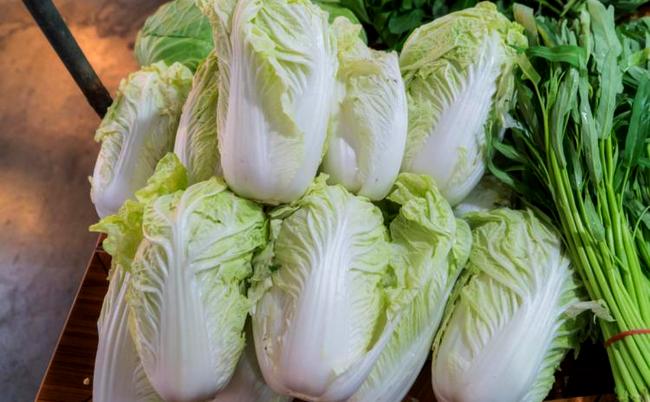
The benefits of Chinese cabbage for a young mother
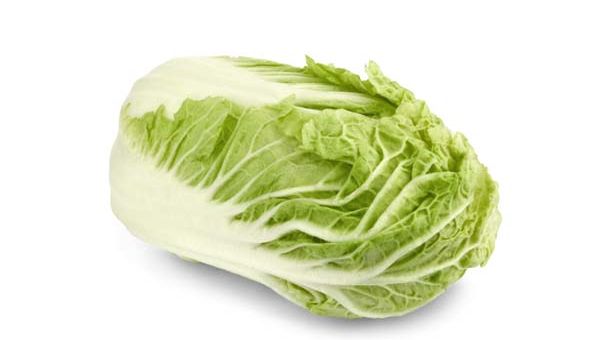
View gallery
Now we’ll tell you a little about the exact benefits of Chinese cabbage during breastfeeding. First of all, it is available for sale fresh in the winter season, when there are very few natural products that contain many vitamins and minerals. In addition, beneficial substances do not disappear after the cabbage has been heat-treated. So its inclusion in the diet of a young mother will allow:
- receive the beneficial microelements and vitamins needed by the body of the mother and child in a natural form;
- provide protection against seasonal diseases; This is facilitated by the presence of lysine in cabbage, which purifies the blood and dissolves foreign proteins;
- improve the condition of skin and hair that were damaged during pregnancy;
- antioxidants allow a young mother to remain active and maintain a cheerful mood even if the baby does not allow her to sleep.
Chinese cabbage during breastfeeding
The nutrition of a woman who is breastfeeding a newborn baby is a controversial issue. There is no consensus among experts regarding the list of products allowed for consumption. An ambiguous attitude has arisen towards such a product as cabbage.
It is worth considering that there are a huge number of types of cabbage. Based on this, a nursing mother should choose the option that will be safest for her baby feeding on breast milk. When choosing this vegetable, you should pay attention to a type of cabbage such as Chinese cabbage. Its consumption causes significantly fewer digestive problems compared, for example, with white cabbage.
To prevent your baby from developing colic or flatulence, you need to eat Chinese cabbage boiled or stewed. You should avoid salads made from fresh Chinese cabbage, or at least reduce their quantity to a minimum.
The benefits of Chinese cabbage for a nursing mother and her baby are invaluable. This vegetable is rich in vitamins and does not cause an allergic reaction. In addition, it contains mineral salts that normalize the activity of the infant’s intestines.
A nursing woman who includes a small amount of Chinese cabbage in her diet enriches her body with vitamins A, B, C, as well as the rare vitamin PP. Deficiency of the latter is expressed in the process of increased nervous excitement. The beneficial properties of Chinese cabbage do not end there.
By consuming Chinese cabbage, a nursing woman can count on increasing her body's resistance to diseases of various origins. Chinese cabbage can confidently be called a dietary product, so a nursing mother can eat it without fear and not be afraid of gaining extra pounds.
Nursing mothers who suffer from high acidity gastritis should not eat Chinese cabbage. In addition, it is worth considering that Chinese cabbage does not go well with some foods. So, you should not use it together with dairy products and sauces made with milk. Otherwise, you may encounter problems such as indigestion and colic.
In other words, a product such as Chinese cabbage can occupy a place in the diet of a nursing mother, but care must be taken when consuming it.
Raw or stewed: which form is better to eat?
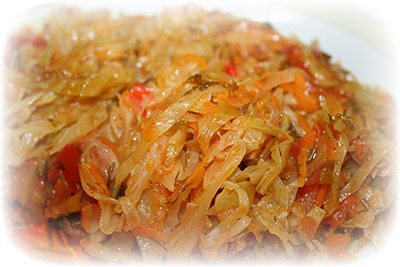
We open the question: Choosing fish that can be introduced into the diet while breastfeeding
Recommendations from experts
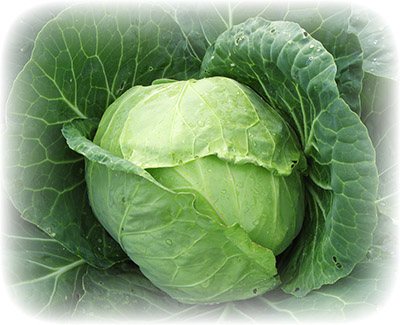
Doctors' opinions are divided on whether it can be introduced into the diet and how safe cabbage is during breastfeeding.
- Some experts believe that everything a woman eats passes into the baby's body through breast milk. Cabbage can cause gas formation and fermentation in the intestines, and therefore harmful substances can enter a woman’s blood. It is recommended to avoid eating this vegetable until the child is one year old.
- Other doctors believe that a woman’s diet during breastfeeding has no effect on the baby’s digestive system. Therefore, a nursing mother can eat cabbage from the first days of a child’s life.
Both experts do not recommend eating cabbage leaves raw, since they contain a lot of coarse fiber, which negatively affects the mother’s digestion. You should also avoid this pickled vegetable, as this product contains a lot of salt and fermentation products. After eating cabbage while breastfeeding, the mother should monitor the child’s health. If your baby shows signs of allergies or colic, you should temporarily exclude the vegetable from the menu.
The effect of Chinese cabbage on the baby's body

View gallery
If you decide to breastfeed your baby, then when creating a diet, you must also take into account how foods affect not only the mother’s body, but also the baby itself. Judging by the reviews, Chinese cabbage during breastfeeding will only diversify the diet and provide the baby with a full amount of milk, which will be enriched with vitamins. If you consume the vegetable in reasonable quantities, you will notice that the child’s quality of sleep will begin to improve, and during wakefulness the mood will be more cheerful. In addition, Chinese cabbage will provide the fragile body with protection from viral diseases.
In addition to all this, the product practically does not cause any allergic reactions, therefore it is quite safe for the baby. However, the best option would be to introduce Chinese cabbage into the mother's diet gradually to see the reaction.
How does it affect the baby?
In the absence of any contraindications and reactions of the baby’s body, eating Chinese cabbage is only beneficial for a nursing mother: passing through breast milk, it is able to improve the health of the baby, as well as replenish the amount of missing vitamins, minerals and all necessary substances.
The vegetable has unique properties that should not be forgotten:
- noticeable strengthening of the immune system;
- receiving the required dose of vitamins (especially important for infants born in winter or early spring);
- improved digestion;
- elimination of constipation and problems with the functioning of the stomach;
- improving sleep quality.

This plant food is extremely beneficial for the well-being of adults and children. A woman can diversify her diet by adding green leaves to light salads, bake with fish or chicken, or complement vegetable stews or casseroles.
If there are contraindications that the girl ignores, there is a very high risk of causing the baby to feel unwell.
You should be wary and exclude irritating foods if your child is bothered by the following symptoms:
- the stool has changed color or texture;
- stool becomes liquid or constipation occurs;
- there were pains in the tummy;
- the baby has become capricious and constantly cries;
- the baby continues to experience flatulence and colic;
- The baby spits up very often or pulls his legs towards his stomach.
Such signs clearly indicate that certain problems have arisen with the gastrointestinal tract. If a girl notices this, it is necessary to immediately eliminate the irritant and not eat the leaves of the fruit for several more months.
Read also: What dried fruits can you eat while breastfeeding (breastfeeding \ lactation)?
